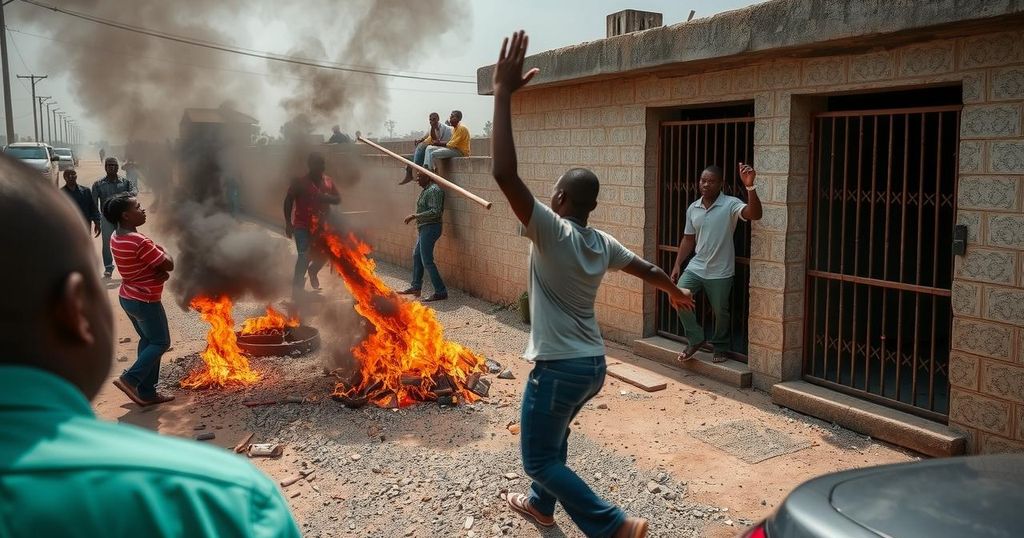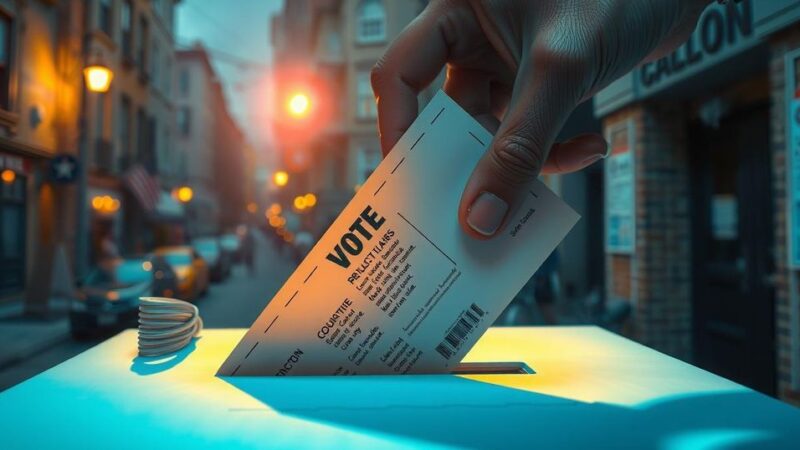Amid significant political unrest in Mozambique following disputed election results, over 1,500 prisoners escaped from a Maputo prison. Protests erupted as the Constitutional Court upheld the ruling Frelimo party’s victory in the presidential elections. The clashes have resulted in numerous deaths and extensive looting, reflecting deep public dissatisfaction with the government’s legitimacy.
In Mozambique, over 1,500 prisoners have escaped from a Maputo prison amid escalating protests against the ruling Frelimo party following disputed presidential election results. The unrest began when the Mozambique Constitutional Court upheld the party’s victory in the October elections, resulting in violence that has so far claimed at least 33 lives and left 15 others injured. Police chief Bernardino Rafael reported that groups of anti-government demonstrators approached the prison on Wednesday, enabling inmates to break through a wall. The unrest has rendered Maputo eerily quiet, with local businesses shuttered in fear of potential violence. In addition to the escapes, there have been widespread reports of looting and attacks on government buildings and infrastructure.
Protests erupted in response to the official election results, which showed incumbent president Daniel Chapo, representing Frelimo, winning with 65% of the vote, a decrease from the initially reported 71%. His main rival, Venâncio Mondlane, received 24% according to the revised tally. Following these developments, Mondlane and other supporters have called for demonstrations, alleging electoral fraud. Mondlane, who has since fled the country, warned of a potential “new popular uprising” should the election results be upheld, reflecting the deepening political crisis in Mozambique.
The backdrop to this turmoil includes a long history of political contention and civil unrest in Mozambique since its independence in 1975. The Frelimo party has been entrenched in power, and recent elections have amplified tensions, leading to significant casualties and destabilization across the nation. The ongoing protests signify the populace’s frustration and desire for governmental accountability, further complicating Mozambique’s political landscape. It is evident that this unrest is rooted in broader issues surrounding governance, legitimacy, and the citizens’ trust in their electoral process.
The current political unrest in Mozambique traces back to the recent presidential election, in which the ruling Frelimo party secured victory amidst allegations of electoral irregularities. The unrest escalated following a constitutional court ruling that affirmed Frelimo’s win while revising the vote margins significantly, leading opposition leaders and supporters to protest vigorously against what they perceive as a rigged election. Over the years, Mozambique has experienced cycles of political and civil strife, particularly surrounding elections, as various factions vie for power and citizens seek representation.
The recent prison break in Mozambique highlights the extent of the political crisis and its repercussions on national stability. With major protests leading to widespread violence, the situation remains precarious, and the government’s response will be crucial in addressing public discontent. The events underscore a crucial moment in Mozambique’s political history, emphasizing the need for reform and reconciliation to prevent further unrest and facilitate a more stable governance structure moving forward.
Original Source: www.bbc.com






